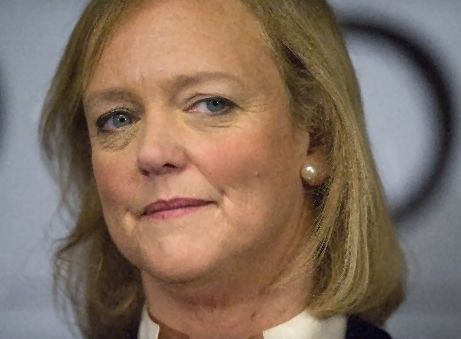

The boss of Hewlett-Packard has opened up about Autonomy, the British software maker that HP famously acquired for $11.3 billion (£7.3bn) in 2011.
While Autonomy may have become an expensive headache, CEO Meg Whitman reportedly sees it as an important part of the company’s future.
Whitman, who was in the U.K. visiting customers and channel partners, said that she is continuing with her plans to keep the massive company together and does not plan to shut down or sell off any of its businesses, according to a report in The Wall Street Journal.
“We remain committed to Autonomy; we remain committed to the brand, to Cambridge, to the UK [where Autonomy is based],” she said, according to the news organisation. “It is an almost magical technology. … It plays into a big shift in the market, the area of big data, which HP should be in.”
A year later, HP announced an $8.8 billion (£5.7bn) charge in connection with the acquisition due to allegations that Autonomy officials fraudulently overstated the software maker’s value in the runup to HP’s buying it. When HP officials announced the charge last year, they said $5.5 billion (£3.6bn) of that was due to “serious accounting improprieties” at Autonomy.
Former Autonomy CEO Mike Lynch and other ex-executives have denied the allegations and have promised to fight them in court. According to The Wall Street Journal, the US Department of Justice and the UK Serious Fraud Office are investigating Autonomy’s financial reports.
The ripple effect through HP has been wide, from a shareholder suing HP over the acquisition to, more recently, two board members resigning and Ray Lane stepping down as board chairman, though he remains a director. Much of the change on the board was due to shareholder unhappiness over the Autonomy deal, though there also were other factors.
It didn’t help that HP announced the charge for the Autonomy deal only a few months after the tech company announced another $8 billion (£5.2bn) charge for its struggling services business, which is based on its $13.9 billion (£9bn) acquisition of EDS Systems in 2008.
Whitman, who was in the UK visiting the Autonomy offices, where 20,000 employees work, reportedly denied speculation that HP was considering getting rid of Autonomy as the embattled company looks to fix its finances, which have been battered by the sharp decline in the global PC market and by its own missteps, according to The Guardian. Whitman has said that instability in leadership – when she became CEO in 2011, she was the third one in about a year for the company – also has hobbled HP.
During the visit, Whitman also said HP was going to up its efforts to build a smartphone and would expand its PC business by making systems that run Google software to complement the company’s Windows-based PCs. HP also will look to grow its use of processing technology designed by ARM, a growing competitor to Intel, whose chips dominate the PC industry.
Do you remember HP’s glory days? Try our quiz!
Originally published on eWeek.
Zuckerberg seeks to revive Facebook's original spirit, as Meta launches Facebook Friends tab, so users…
Notable development for Meta, after appeal against 2021 WhatsApp privacy fine is backed by advisor…
First sign of shakeup under new CEO Lip-Bu Tan? Three Intel board members confirm they…
Trump's nominee for SEC Chairman, Paul Atkins, has pledged a “rational, coherent, and principled approach”…
After being 'retired' by Intel's board of directors, ex-CEO Pat Gelsinger has joined a VC…
President touts easing Chinese tariffs to facilitate TikTok sale, and also implements 25 percent tariff…